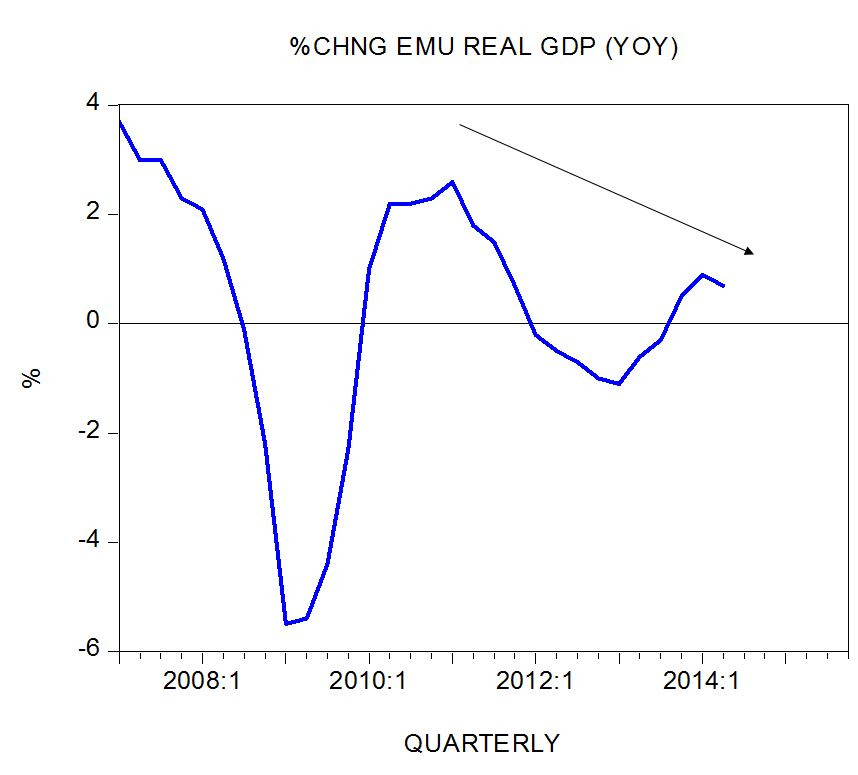Dalibor Roháč of the Legatum Institute and Matthew Sinclair of the Taxpayers’ Alliance have jointly authored a report on the risks of new global financial regulations:
Around the world politicians and officials are advancing major new regulations of the financial services industry. Those regulations are a response to a major financial crisis, but real care needs to be taken to ensure that they help avoid future crises, and won’t precipitate or exacerbate crises instead.
…
- The increased internationalisation of financial regulation risks amplifying future global booms and busts. Global regulations lead to global crises as organisations are encouraged to hold similar assets and respond in similar ways when things go wrong. As a result, the new regulation could increase the systemic risk to the world economy.
- Attempts to focus regulation on the institutions that contribute the most to systemic risk carry their own risks. If institutions understand that they are seen as “too big to fail” then that will encourage excessive risk taking.
- Despite attempts to address the issue, the Basel regulations may still be procyclical, imposing more onerous requirements on institutions at times when the system is in trouble.
- Some measures proposed, like attacks on tax havens and hedge funds, are motivated by other agendas and do not actually address the problems that led to the financial crisis.
- There is an important debate over whether or not effective “macro-prudential” regulatory policy is possible. However, the policies introduced since the financial crisis do not live up to that standard. Some of the measures announced are disingenuous political posturing while others continue existing mistakes partly responsible for the problems we are facing today. It is entirely possible that the new regulations being implemented could hurt established financial centres like the City of London while increasing the frequency and strength of global financial crises.
Download the full report (PDF).
The Taxpayers’ Alliance announcement is here:



I downloaded the Taxpayer Alliance (TPA) work on bank regulation. I was so underwhelmed by the bullet pointed “Executive Summary” on p.1 that I doubt I’ll read the whole thing.
The first bullet pointed para claims “The increased internationalisation of financial regulation risks amplifying future global booms and busts. Global regulations lead to global crises as organisations are encouraged to hold similar assets and respond in similar ways when things go wrong. As a result, the new regulation could increase the systemic risk to the world economy.”
My answer is “OK, but what’s the alternative?” If we have different regulations in different countries, banks will migrate to countries with the most lax regulations.
The second bullet pointed para claims “Attempts to focus regulation on the institutions that contribute the most to systemic risk carry their own risks. If institutions understand that they are seen as “too big to fail” then that will encourage excessive risk taking.
My answer is that the “too big to fails” already know who they are, so legislation aimed at the too bigs won’t exacerbate matters to any great extent.
TPA’s 3rd point is “Despite attempts to address the issue, the Basel regulations may still be procyclical, imposing more onerous requirements on institutions at times when the system is in trouble.”
My answer is that there no excuse for Basle rules being pro-cyclical. Moreover, the TPA has failed to see the wood for the trees here: the real monster pro-cyclical characteristic that banks currently have is their freedom to engage in fractional reserve, as Huerta do Soto rightly points out.
Banks can be relied on to devote billions to undermining bank regulation. Has the TPA has been “got at” by banks? Just to be cheeky, anyone know how much lolly banks have given the TPA?
Remove the special privileges that banks enjoy, and don’t regulate them at all, just prosecute them if they behave fraudulently.
The free market is the best regulator. Without burdensome regulation, it would be much easier for new banks and investment firms to emerge.